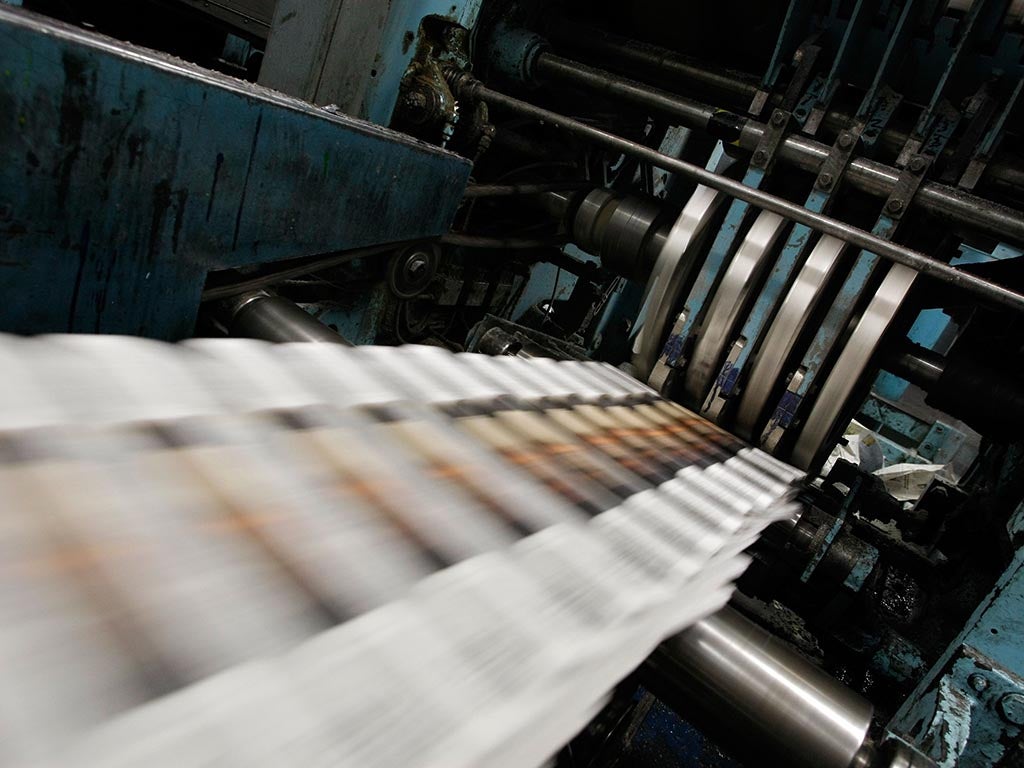Jeremy Clarkson is the gift that keeps on giving. No sooner had he and the BBC been plunged into an almighty face-off over “fracas-gate” than an earlier incident, in which the word “pikey” had been used during an episode of Top Gear, was ruled acceptable by the BBC Trust’s editorial standards committee. Say what you like about the man, but he sure knows how to make headlines.
In The Independent’s reporting of the “pikey” ruling, the question arose as to whether it was appropriate to use the term itself in a front-page headline. There were several issues. First, is there something fundamentally different about page 1, whereby certain words or pictures, which might be included elsewhere in the paper without anxiety, should not appear? Well, double standard though it might be, the answer might be “Yes”. Simply because of its much greater prominence and visibility – including to those who are not buying the paper – the front page falls into its own category.
Second, where does “pikey” come in the league table of offensiveness? There are plenty of slang words with racist connotations, but some, perhaps merely by convention and historical context, are regarded as more odious than others. Had it been the “n” word under investigation, it is inconceivable that it would have ended up in our headline. That is not only because of its extreme offensiveness but also because it can mean only one thing. That is not true of the “p” word.
In short, the use of “pikey” on a front page felt acceptable, given that it was being used in the context of a direct quote. And, having decided to give the story a front-page airing, it would have been coy to have tried to create a headline that avoided the term.
But if our use of the word in a news headline is one thing, what about the BBC Trust’s ruling that, because “pikey” has come into common use among “a number of people” to mean “cheap”, it can be used legitimately in non-news programming without people associating it with the Gypsy and Traveller communities. I am unconvinced.
The ruling seems predicated on an inverse logic: that because some people don’t know the word’s origins, its continued use in a context where there are no explicit racial overtones is acceptable. Yet ignorance about etymology often fuels casual racism. The use of “gyp” to mean “swindle” has thankfully declined, perhaps in part because the word’s root is more obvious. It seems odd that another derogatory label for a Traveller might conversely be legitimised by imagining that its use in an alternative, but still negative, context developed without reference to its origins.
Suicide threats are always serious
A coroner ruled on Friday that Brenda Leyland, who was confronted last year by a Sky News TV crew and who killed herself some days later, had intended to take her own life. Her son said that being challenged by a reporter was the “final straw” for a woman who had long struggled with depression.
Ms Leyland had for two years been posting anonymous and hateful messages about the parents of Madeleine McCann. She was a legitimate subject of journalistic inquiry. What came next could not have been foreseen.
Sadly, the threat of suicide is occasionally raised by people who find themselves the subject of media interest and want to keep something out of the public glare. There are few more troubling situations for journalists to find themselves in and, despite the perception that hacks are uncaring fly-by-nights, no such threat is ever dismissed lightly.
Will Gore is Deputy Managing Editor of The Independent, i, Independent on Sunday and the Evening Standard
Twitter: @willjgore


Join our commenting forum
Join thought-provoking conversations, follow other Independent readers and see their replies
Comments